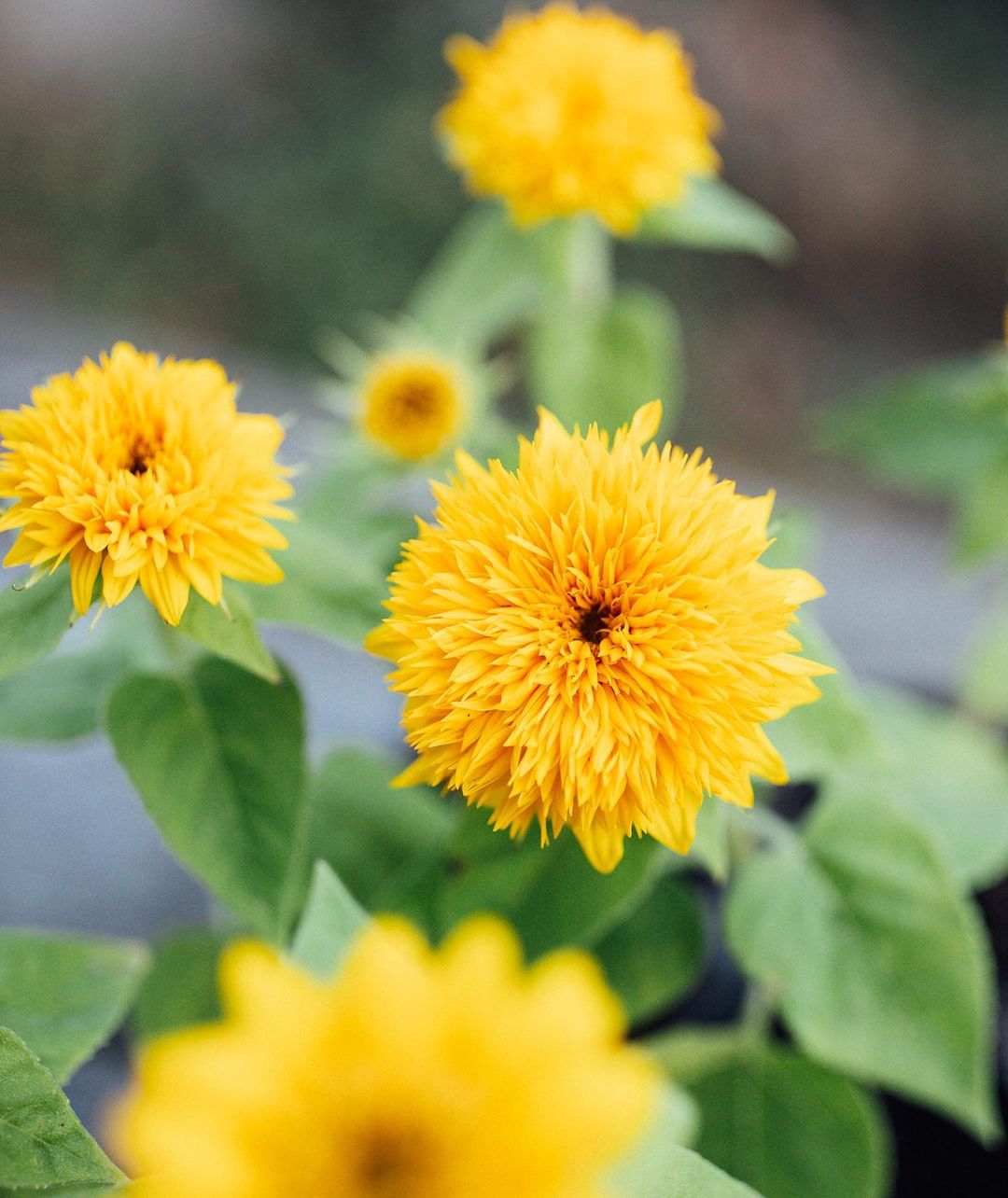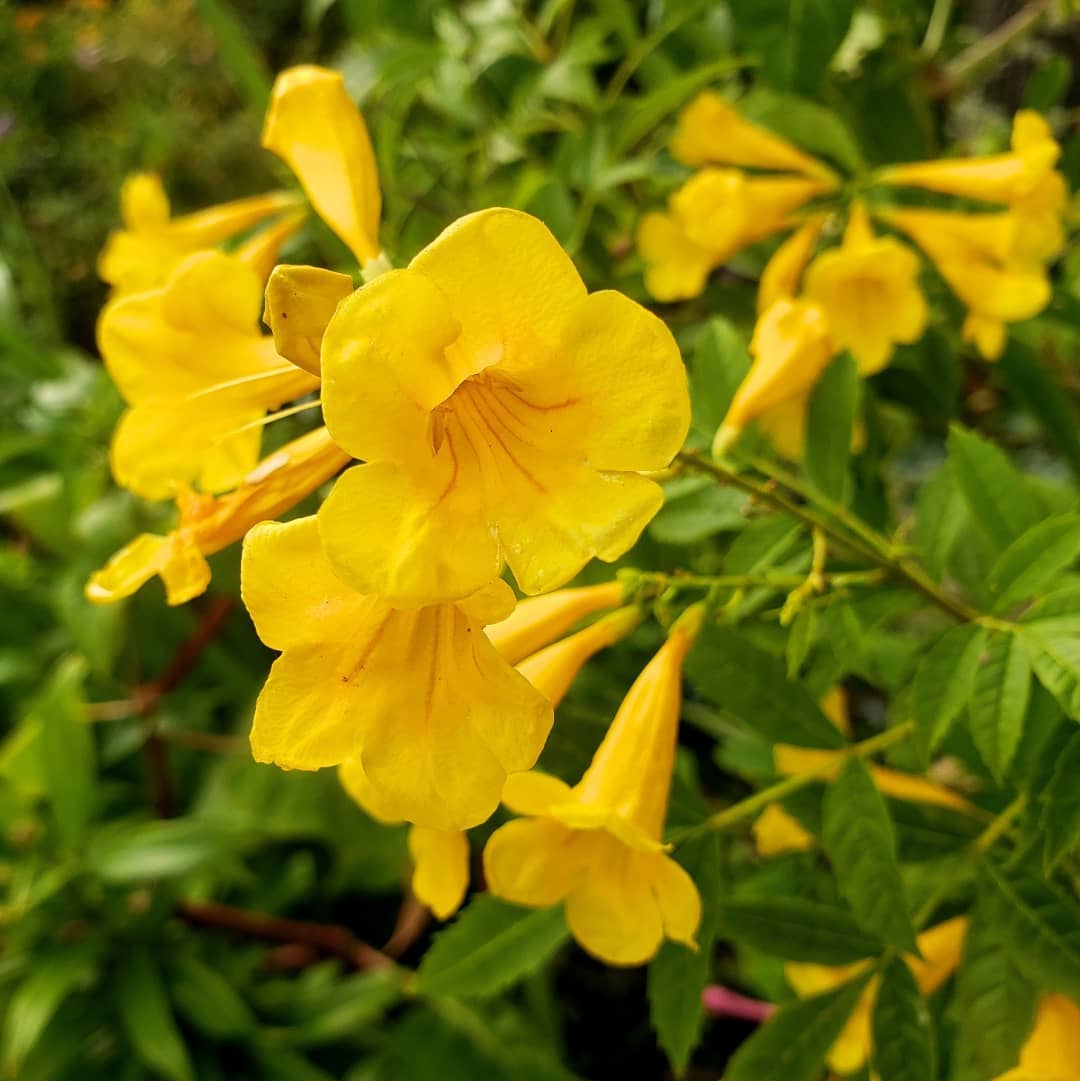Nurture the charming blooms in your garden with the expert tips in this Teddy Bear Sunflower Growing and Care Information guide.
Read this Teddy Bear Sunflower Growing and Care Information guide to ensure the flourishing growth of these pretty blooms in your garden.
Common Name: St. Bartholomew’s Star ‘Teddy Bear’, Comb flower ‘Teddy Bear,’ Common Sunflower ‘Teddy Bear,’ Golden Flower of Peru ‘Teddy Bear’
Botanical Name: Helianthus annuus ‘Teddy Bear’
Teddy Bear Sunflower Zone: 2-11
Find What Do Sunflowers Represent
Teddy Bear Sunflower Profile
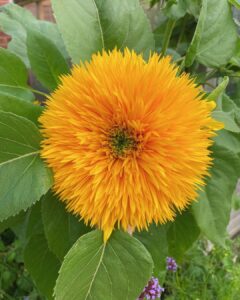
Helianthus annuus ‘Teddy Bear’ or common sunflower, derives its name from its striking resemblance to miniature mops rather than stuffed animals.
This fast-growing annual dwarf teddy bear sunflower is a cultivar of Helianthus annuus. It features fluffy, double-petaled golden yellow pompoms measuring 5-6 inches across and broadly ovate leaves. Loved by bees and pollinators, this plant has won the Award of Garden Merit of the Royal Horticultural Society for its outstanding characteristics.
Teddy bear sunflowers have a height of up to 2-3 feet and 12-18 inches wide. They bloom for about 5 weeks, providing vibrant colors throughout the summer. At the end of the season, edible teddy bear sunflower seeds can be harvested for planting or roasting.
Interestingly, scientists have identified that the double-bloomed sunflowers featured in Vincent van Gogh’s famous paintings were similar to the Teddy Bear variety. However, the elusive gene mutation responsible for the green centers depicted by the artist remains a mystery.
This low-maintenance plant is a great choice for perennial borders.
Read Do Deer Eat Camellias? Find Out
Propagating Teddy Bear Sunflower
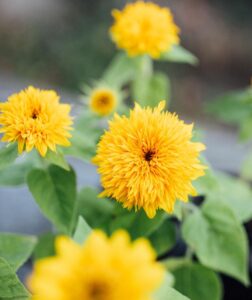
Since the Teddy Bear sunflower is a half-hardy annual, it is susceptible to damage from cold weather and frost. Therefore, it is advisable to sow the seeds indoors and wait for the frost to pass before transferring the seedlings outside.
Growing Indoors
When to Plant: You should start sowing your Teddy Bear sunflowers in the middle of spring, as it is the optimal time. Although frost remains a concern, you need not worry because the plants will be grown indoors until they become hardened. Here are the steps you should follow:
- Take small pots and fill them with soil or compost.
- Sow two seeds in each pot, ensuring they are approximately half an inch deep in the soil.
- Thoroughly water the pots without excessively soaking the soil.
Place the pots in a sunny location, such as a windowsill, where they can receive ample sunlight. - Monitor the growth of the seedlings, and once they develop the second set of leaves, it is time to separate them.
- Carefully remove the soil from the pot and gently separate the plants at the root.
- Replant each seedling in its individual pot, adding compost and thoroughly watering them.
- Keep the pots in the sunny position, ensuring the soil does not dry out.
- Once the threat of frost has passed, transplant the sunflowers outside into a well-drained area in your garden.
- Leave a minimum distance of 20 inches between each sunflower plant to facilitate proper airflow.
- Apply liquid fertilizer or a slow-release plant supplement, and water the soil thoroughly.
- Remove fading flowers to stimulate the growth of more blooms.
Read Gardenia Growing and Care in Pots
Growing Outdoors:
To plant Teddy Bear sunflowers directly in the garden, you need to follow a slightly different approach than sowing the seeds indoors first. Here’s how you can do it.
- To prepare the bedding for planting Teddy Bear sunflowers directly in the garden, select a sunny area that receives ample light and air.
- Add mulch, compost, and any pre-prepared organic material to the soil and allow it to settle thoroughly.
- To enhance growth and flowering, apply a liquid fertilizer once a week. However, these sunflowers can thrive in various soil conditions, including poor soil.
- When the risk of frost has passed in late spring, plant two to three seeds in each designated spot. Ensure they are half an inch deep in the soil, similar to sowing them in a pot.
- Water the seeds and protect them by covering them with a mesh to maintain soil warmth. Prevent disturbance from digging critters.
- Once the seedlings develop a second set of leaves, it is time to thin out the plants.
- Remove the weaker seedlings, allowing the stronger ones to remain.
- To provide adequate ventilation and light, space the sunflowers, leaving approximately 20 inches between each plant.
- Guard the plants against critters and predators by utilizing mesh as a protective barrier.
- Water the plants regularly and apply slow-release fertilizer as needed to support their growth.
Growing Teddy Bear Sunflower in Pots
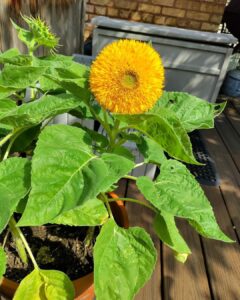
For growing teddy bear sunflowers in pots from seeds, wait till the weather warms up and the risk of frost has completely passed.
- Select a container with sufficient depth and ensure it has proper drainage holes.
- Fill the container with a high-quality seed starting mix.
- Sow the seeds at a depth of 1/4 to 1/2 inches, leaving at least 6 inches of space between each seed.
- After planting, thoroughly water the container.
- Keep the soil consistently moist until germination, which usually occurs within 7 to 14 days.
- Ensure that the pot is placed in a sunny location to promote robust stem growth and flowering.
Although the flower height may be shorter in the container, the stem height will still appear proportional and aesthetically pleasing.
In the container, expect the stem height to reach up to 12 inches. While in the garden, under ideal conditions, it can grow up to 42 inches.
Read 9 Wonderful Bougainvillea Care Tips
Teddy Bear Sunflower Growing and Care Information
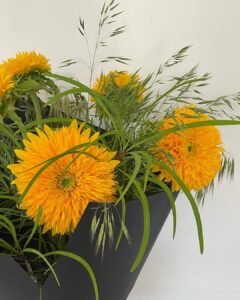
Location
Teddy Bear sunflowers, like all other sunflowers, thrive and achieve their best flowering potential in a location with full sun and direct sunlight.
Soil
Teddy Bear sunflowers can tolerate poor soil conditions as long as it is well-drained. Adding mulch and compost to the soil enhances aeration and water retention.
It is important to ensure that the soil remains weed-free, as it can compete with sunflower plants for water and nutrients.
Water
Water the Teddy Bear sunflowers moderately, avoiding overwatering, which can harm the plant. Use a gentle spray and refrain from using a powerful hose to prevent disturbance to the topsoil.
Find What Does Calendula Smell Like?
Teddy Bear Sunflower Care
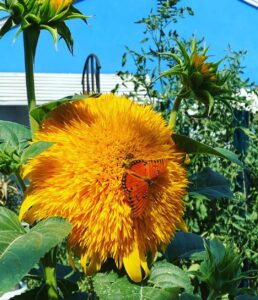
Fertilizer
Fertilizing teddy bear sunflowers is not necessary as long as you add granular fertilizer or amend the soil with compost during planting. These flowers will have the required nutrients to thrive and produce throughout the growing season.
Protection
Rabbits, birds, squirrels, and similar pests can munch on the young seedlings. Protect them using row covers or bird netting in your garden
Deadheading
To optimize the plant’s energy for new blooms, actively deadhead the fading flowers by plucking them from the plant when they are spent.
Pests and Diseases
The Teddy Bear sunflower, popular for its fluffy blooms that attract butterflies and bumblebees, has the potential to draw in various pests and critters.
Slugs, cutworms, caterpillars, and snails are common nuisances. Furthermore, squirrels have a tendency to indulge in sunflower seeds, requiring protection until germination. Vigilantly observe for insects or bugs and promptly remove them. Additionally, it is advisable to eliminate any diseased leaves, particularly those affected by mildew.
If you intend to consume the petals or seeds, avoid using pesticides and herbicides at any time during the growing process.
Find Common Bird of Paradise Problems and Solutions Guide
Harvesting Teddy Bear Sunflower Seeds
When the Teddy Bear sunflowers start to fade, they produce seeds, which are an important part of the plant’s lifecycle. Squirrels have a strong attraction to sunflower seeds, whether they are the ones you planted or the ones growing from the wilting flowers. Therefore, it is crucial to gather the ripe seeds promptly. The seeds are relatively small and have a dark gray or black color. As soon as the seeds begin to drop, it is your signal to collect them before squirrels snatch them away.
Find Star of Bethlehem Flower Care

